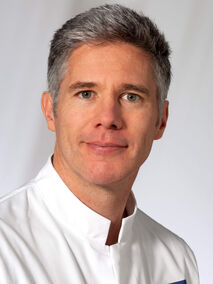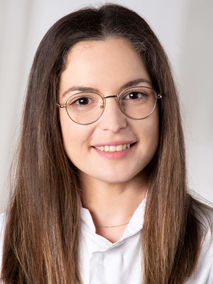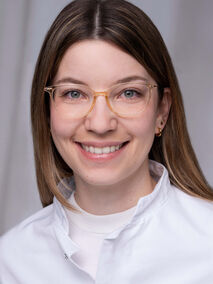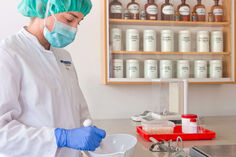Pharmaceutical Oncological Service (POS)
Cytostatics are highly effective drugs that are used to treat malignant cancers, usually in combination with surgery and/or radiotherapy. This type of therapy is also commonly referred to as "chemotherapy". As cytostatic drugs have a toxic effect on cancer cells, they are able to kill cancer cells to a certain extent. Unfortunately, this toxic effect is not limited to cancer cells alone, so that healthy cells can also be affected. This can cause more or less severe side effects. The type of side effect usually depends on the active substance used and may require supportive treatment (so-called supportive therapy).
What we would like to see
Intensive interdisciplinary cooperation with medical staff in the development of guidelines for the use of cytostatic drugs or oncological supportive therapy. The creation of standards (SOPs) enables transparency in drug therapy and increases drug safety. From a pharmacoeconomic perspective, the creation of guidelines is particularly important in oncology.
Early involvement of pharmacies in new oncological studies. We would like to see an intensive flow of information from the study centres in our company. Through years of involvement in the implementation of clinical trials, not only in the oncological field, we are familiar with this matter.
You may contact us through
Im Neuenheimer Feld 67069120 Heidelberg
Building 6670
Service hours
Central Cytostatics Service
Monday - Friday: 7 am - 5 pm
Regular ordering times
Monday - Friday: 7 am - 2 pm
Saturday: 10 am - 12 noon (urgent cases only)
Emergencies
On weekdays after 5 pm and at weekends
On-call service in emergencies via the surgery gate
Tel.: 06221 - 56 6110
POS services
- Patient-specific, aseptic preparation of cytostatic infusion solutions
- Compliance with all required safety regulations for handling cytostatic drugs
- Plausibility check of the prescription with regard to dose, time interval and compatibility with the carrier solution
- Supervision of oncological studies. In addition to production, this may include randomisation, blinding and documentation of the study goods.
- Advising doctors on all questions relating to cytostatic drugs, their dosage, side effects and interactions
- Participation in the development of guidelines for oncological supportive therapy
- Further training for doctors and nursing staff on the safe handling of cytostatic drugs, as well as on the properties of cytostatic drugs and supportive therapy
Central Cytostatics Service (ZZS)
The department was set up in 1994. At that time, we started in the polyclinic on Dusch's ward and in the pharmacy in the INF with two pharmacists and two pharmaceutical technical assistants (PTAs). Only a few wards could be supplied with ready-to-use preparations right from the start. In 1996, we moved to new premises in the old hospital and were able to take on more staff. Since then, we have been able to take over the production of cytostatic solutions for all oncological wards. Increasingly, we are also separating high-priced non-oncological drugs in order to reduce waste and thus save considerable costs. In 2002, electronic prescriptions were introduced in SAP Materials Management using software developed in-house. This made it possible to achieve case-related booking and invoicing as well as a gain in therapeutic safety. In 2004, we were able to move into new clean rooms in the clinic pharmacy in Neuenheimer Feld. Three pharmacists and 8-10 PTAs now work in our department. Preparation is possible 24 hours a day and also at weekends thanks to the provision of a standby service for emergencies outside regular working hours. With more than 60,000 patient-specific preparations per year, we are one of the largest cytostatic drug manufacturing hospital pharmacies in Germany.
How are cytostatics manufactured?
Prescribed cytostatic drugs for intravenous, intrathecal, intramuscular or subcutaneous administration are prepared individually for the patient by the hospital pharmacy. This is done promptly before the preparations are administered. Body size and weight are important for calculating the dose. The production process involves extensive testing and documentation activities, which often involve a high level of communication in order to be able to deliver a high-quality, safe product later on. Production takes place under product and personnel protection. Product protection on the one hand, as the product must have the lowest possible germ load in order not to expose the mostly immunocompromised patients to the risk of infection, which could have serious consequences. To avoid this, cleanroom clothing is used in so-called "cleanrooms". On the other hand, the protection of personnel is of paramount importance because - as already mentioned - these are highly effective drugs with a toxicity that should not be underestimated. Personal protective equipment is therefore mandatory when handling these drugs. This usually consists of a protective gown, face mask, gloves and arm warmers. Work is carried out under safety workbenches, which are designed to prevent cytostatic drugs from being carried out of the work area. The production of cytostatics demands a great deal of concentration, discipline and reliability from the staff, as even small mistakes can be very serious. For this reason, the personnel employed are exclusively highly trained and highly qualified pharmaceutical personnel. After production, the preparations are transported directly to the ward by a community service worker.
Responsible pharmacists

Mieke Mertens
Pharmacist
(Pharmacy of the Heidelberg University Hospital)
Specialist pharmacist for clinical pharmacy
Pharmaceutical-Oncological Service, Clinical Studies

Matthew Schnabl
Pharmacist
(Pharmacy of the Heidelberg University Hospital)
Pharmacist
Pharmaceutical Oncology Service, Clinical Studies

Ela Tapija
Fachapotheker für klinische Pharmazie
Pharmazeutisch-Onkologischer Dienst
QMS
![[Translate to English:] Portrait von Maren Bechberger [Translate to English:] Portrait von Maren Bechberger](/fileadmin/_processed_/7/1/csm_Bechberger__Maren_Apo_1c25397af2.jpg)
Dr. Maren Bechberger
Specialist pharmacist for clinical pharmacy, infectiology
ABS expert (DGI)
Head of Research and Teaching
Clinical studies, Pharmaceutical Oncology Service

Dr. Michael Ober
Specialist pharmacist for clinical pharmacy
Pharmaceutical-oncological service, formulation/defect preparation

Laura Kirsch
Specialist pharmacist for clinical pharmacy, oncology
Pharmaceutical Oncology Service
QMS


